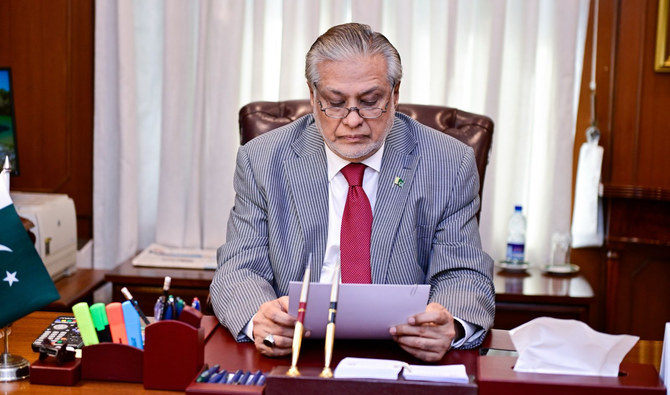ISLAMABAD: Pakistan’s newly appointed foreign minister Ishaq Dar vowed to strengthen the economic partnership with the United Arab Emirates (UAE) during a phone conversation on Friday with his counterpart in the Middle Eastern state.
The two nations enjoy a strong and multifaceted relationship, anchored in deep-rooted historical, diplomatic and economic ties. They maintain close diplomatic relations, regularly consulting on regional security issues and collaborating on initiatives to promote peace in the Middle East and South Asia.
Their engagement in joint military exercises, intelligence sharing, and counterterrorism cooperation also underscores a strong strategic partnership between them.
“Delighted to receive a congratulatory telephone call from my dear brother, His Highness Sheikh Abdullah bin Zayed Al Nahyan @ABZayed,” Dar said in a social media post. “We discussed the sustained momentum of our multi-tiered cooperation.”
“I look forward to working closely with His Highness in transforming the bilateral relations with the UAE into a mutually beneficial economic partnership,” he added.
Earlier this week, Dar, who has served as Pakistan’s finance minister four times, assumed leadership of the foreign ministry, highlighting the importance of economic diplomacy.
Pakistan is keen on attracting international investment and has established the Special Investment Facilitation Council, a civil-military hybrid forum, to expedite decision-making and boost investment from abroad, especially from Gulf countries.
The UAE, having deposited substantial funds into Pakistan’s central bank to bolster its foreign exchange reserves, stands as a crucial economic ally, providing significant investments, job opportunities for Pakistani expatriates and financial aid.
Both countries have also collaborated closely in other areas, with the UAE sending relief items for flood affected families after the unprecedented monsoon rains two years ago that destroyed houses, farmlands and public infrastructure in Pakistan.
















